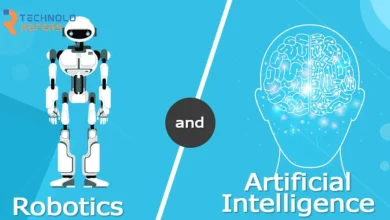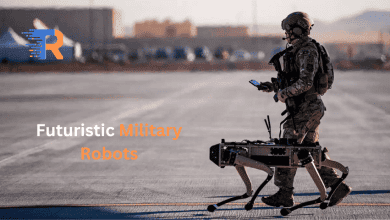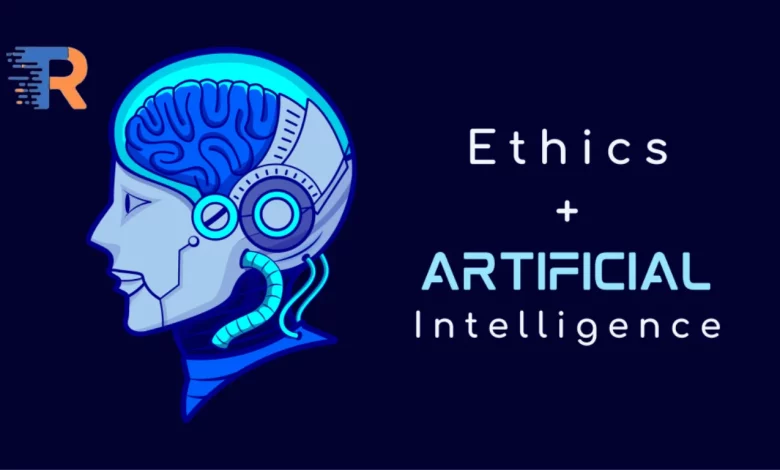
Misinformation and Fake News-Artificial Intelligence Robots -Ethical Issues in Artificial Intelligence
The dissemination of misinformation, coupled with our inherent challenge in perceiving reality objectively poses a significant threat to the foundation of an informed democracy. Instances such as Russian hackers manipulating the US elections, influencing the Brexit campaign, and impacting the Catalonia crisis exemplify how social media can rapidly propagate misinformation and false narratives. The latest strides in computer vision technology have reached a point where it is feasible to fabricate entirely convincing videos, as seen with the creation of a simulated video featuring President Obama. An unresolved query remains: How will institutions confront and mitigate this evolving threat?
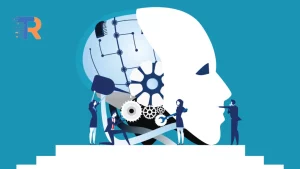
Job Displacement
The 18th-century scientific revolution and the 19th-century Industrial Revolution brought about a deep public transformation. For millennia prior, financial growth had been smallest. The 19th and 20th eras witnessed prominent steps in social progress. In the 19th century, the Luddites, a gr0up in the UK, protested the mechanization-of-the-textile industry by sab0taging-machinery.
Fast forward to last month, where a tragic-event-happened as a woman was struck and killed by an Uber self-driving car while crossing a street-in-the-US. It helps as a blunt reminder that, like any technological system, AI-systems can err. The mistake that robots are flawless and extremely accurate is widespread. In my former laboratory, professors-often-greeted their robotics-PhD-students with the playful question, “What have you broken today?”
Must Read: Fast Food Robots
Military Robots
A continuing discussion revolves around the regulation of military robot development and the prohibition of autonomous weapons. A collective appeal, endorsed by 25,000 AI researchers and professionals, urges the prohibition of autonomous weapons devoid of human supervision to prevent the onset of an international military AI arms race.
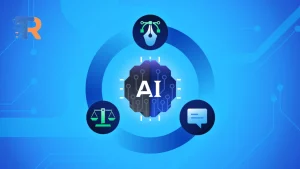
Algorithmic Bias Ethical Issues in Artificial Intelligence
Vigilant efforts are essential to eliminate bias and discrimination in the development of AI algorithms. A specific illustration is observed in face detection using Haar Cascades, where a lower detection rate in individuals with dark skin compared to those with light skin is evident. This discrepancy arises because the algorithm is tailored to identify a double T pattern in a grayscale image of the face, corresponding to the eyebrows, nose, and mouth – a pattern more challenging to discern in individuals with dark skin.
It is crucial to clarify that Haar Cascades, as algorithms, are not inherently biased or discriminatory. However, it is imperative to acknowledge that users may perceive certain outcomes as insulting. When programming these algorithms, it becomes crucial to be mindful of their limitations, foster transparency by elucidating how the algorithm functions, or explore alternative, more effective techniques for individuals with dark skin.
Regulation
Current legal frameworks were not specifically crafted with AI in consideration; nonetheless, this absence of explicit regulation does not imply that AI-based products and services operate without oversight. As Brad Smith, Chief Legal Officer at Microsoft, proposes, “Governments must strike a balance between fostering innovation and safeguarding consumer safety by holding creators of AI systems accountable for harm resulting from unreasonable practices.” Collaborative efforts among policymakers, researchers, and professionals are essential to ensure that AI contributes positively to humanity.
Superintelligence
Certain technology leaders express apprehension about potential AI threats, particularly the fear of mass unemployment resulting from automation and technological progress. While the early forecast of extensive job-loss has verified wrong, there has indisputably been a major and stressful displacement of employment. PwC anticipates that by 2030, roughly 30% of jobs will be subject to computerization. Given these situation, it is vital for governments and companies to provide workers with the essential tools to adapt to these transformations. This includes bolstering educational support and-facilitating-job relocation-efforts.
Privacy and Ethical Issues in Artificial Intelligence
Privacy has become a well-known topic in latest news, highlighted by the Cambridge-Analytica-scandal. In this event, 87 million Facebook profiles were illegally obtained and utilized to sway both the US election and the Brexit-campaign. It underscores the implication of confidentiality as a basic human right that must be protected against any form of mistreat.
Cybersecurity
Cybersecurity stands 0ut as a main concern for governments and businesses, mainly within the banking sector. In 2015, reports surfaced of a confounding $1 billion heist in banks acr0ss Russia, Europe, and China, next to a half-billion-dollar theft from the crypto-currency exchange Coincheck. While AI holds promise in fortifying defenses against these vulnerabilities, there exists the dual risk of hackers utilizing AI to devise innovative and sophisticated methods for targeting institutions.
Mistakes of AI
An instance of this was Elon Musk, who asserted that AI poses a greater risk than North Korea. These statements received significant backlash from the scientific community.
Superintelligence is commonly defined as a stage where a robot begins to iteratively enhance itself, surpassing the intelligence of the most brilliant human by substantial margins. Some optimistic voices, such as Ray Kurzweil, anticipate reaching this stage by 2045. Conversely, skeptics like François Chollet contend that achieving such a state is implausible.
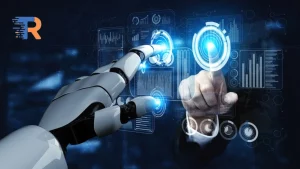
Robot Rights with Ethical Issues in Artificial Intelligence
Should the question of whether robots deserve rights arise, the answer seems straightforward if we view a robot merely as an advanced washing machine – in such a case, no rights are warranted. However, the situation becomes less clear if robots were to exhibit emotions or feelings. Marvin Minsky, a trailblazer in AI, contended that there is no intrinsic distinction between humans and machines, asserting that achieving general AI is implausible unless robots possess self-conscious emotions.
A proposal in the ongoing debate over robot rights suggests granting robots the right to exist and fulfill their objectives, contingent upon their obligation to serve humanity. This notion sparks considerable controversy. Notably, in 2017, Sophia the robot was bestowed with citizenship in Saudi Arabia, even eliciting playful banter from Will Smith.
Pros and Cons of Artificial Intelligence Robots
| Pros of AI Robots | Cons of AI Robots |
| Increased Efficiency | Job Displacement |
| Precision and Accuracy | High Initial Costs |
| 24/7 Availability | Lack of Creativity and Intuition |
| Handling Repetitive Tasks | Ethical Concerns |
| Data Analysis and Pattern Recognition | Dependency on Technology |
| Enhanced Safety | Limited Emotional Intelligence |
| Personalization and Adaptability | Complex Implementation and Maintenance |
AI in Everyday Life
AI, the silent architect of our everyday tapestry, weaves its influence into the intricate threads of our routines, work dynamics, and moments of repose. Here, we unravel a bespoke array of instances, showcasing the nuanced impact of AI in our daily experiences:
- Intelligent Companions: Siri (Apple), Alexa (Amazon), and Google Assistant, our virtual confidantes, harness the essence of AI to respond to our queries, set reminders, and orchestrate the symphony of our smart home devices—all with a voice command.
- Tailored Entertainment: Platforms like Netflix, Amazon, and Spotify enlist the prowess of AI algorithms to curate suggestions—be it movies, products, or music—crafted from the nuances of our preferences and past interactions, presenting a personalized aesthetic to our digital encounters.
- Augmented Search Journeys: The digital compass of Google, enriched by AI, embarks on a quest for relevance. Machine learning, as the compass needle, navigates our online seas, refining search results to offer not just information but insights tailored to our quest.
- Social Media Sorcery: AI, the digital maestro, orchestrates the rhythm of social media platforms. It not only curates content suggestions but also fine-tunes our digital sanctuaries, filtering out the dissonance of inappropriate content and harmonizing our experience.
- Inbox Alchemy: The wizardry of AI-based spam filters transforms our inboxes. These digital gatekeepers intuitively categorize and prioritize emails, minimizing clutter and unveiling the gems while guarding against potential threats.
- Autonomous Odyssey: AI, the captain of the digital highway, propels the journey of autonomous vehicles. From self-driving cars to intelligent road companions, AI is the silent navigator, ensuring a seamless and secure passage.
- Medical Marvels: Within the realm of healthcare, AI dons the robes of diagnostic wizardry, aids in drug discovery, and deciphers the intricate patterns of patient data, ushering in a new era of predictive health and personalized care.
- E-commerce Enchantment: AI-driven chatbots, the digital custodians of e-commerce realms, extend a helping hand to customers, smoothing their journey with quick responses and enhancing the overall shopping experience.
- Financial Fortitude: The financial arena witnesses the finesse of AI in detecting fraud, navigating algorithmic trades, and offering personalized credit scores. Robo-advisors, the financial guides of the digital age, present automated investment recommendations.
- Linguistic Alchemy: Language barriers crumble under the weight of AI-powered translation marvels like Google Translate, rendering text and speech in real-time—a testament to the breaking down of linguistic boundaries.
- Creative Content Choreography: The pen of AI dances across digital canvases, crafting news articles, reports, and even creative pieces. Yet, the human touch remains, as these digital drafts often seek the brushstroke of human editing.
- Gaming Galaxies: AI weaves the narratives of video games, breathing life into non-player characters (NPCs) that adapt to player behavior, creating immersive realms that respond to skill levels, revealing the potential for gaming to be a storytelling masterpiece.
- Digital Realms of Reality: AI algorithms unfold the realms of Virtual Reality (VR) and Augmented Reality (AR), tracking our movements, recognizing objects, and shaping interactive experiences that blur the lines between the digital and physical.
- Smart Homescapes: AI, the architect of efficiency and security, extends its reach into our homes. Smart devices—thermostats, cameras, and lighting systems—dance to the choreography of AI, orchestrating an energy-efficient and secure haven.
- Educational Odyssey: AI becomes the mentor in the digital classroom, tailoring educational content to individual learning styles and progress, presenting a personalized roadmap for each student’s educational journey.
- Predictive Prowess in Industry: In the industrial labyrinth, AI dons the mantle of clairvoyance, predicting equipment failures and optimizing maintenance schedules, reducing downtime and cutting costs.
- Linguistic Harmony: The symphony of Natural Language Processing (NLP) unfolds as voice assistants, chatbots, and language translation services seamlessly converse with users, unraveling the complexity of human language in a digital discourse.
As Ethical Issues in Artificial Intelligence gracefully pirouettes through our daily existence, its growing presence invites not just marvel but introspection. Within the realm of progress, the ethical and privacy considerations accompanying AI’s ascent beckon us to navigate this digital frontier with wisdom and conscientious care.


